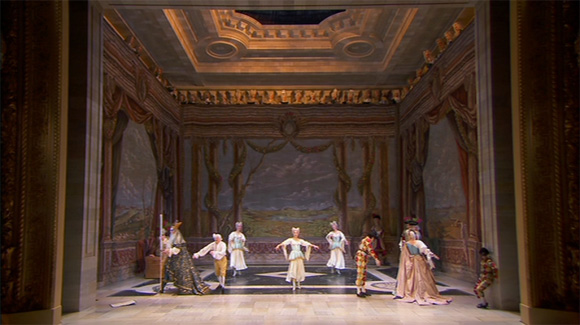 This is a really interesting and unusual album. French mezzo-soprano Stéphanie d’Oustrac teams up with a small baroque ensemble, Le Poème Harmonique (accordion, theorbo, strings, bassoon/flute) led by Vincent Dumestre to present a selection of music that ranges from traditional songs through 17th century opera/oratorio arias to cabaret music and modern chansons.
This is a really interesting and unusual album. French mezzo-soprano Stéphanie d’Oustrac teams up with a small baroque ensemble, Le Poème Harmonique (accordion, theorbo, strings, bassoon/flute) led by Vincent Dumestre to present a selection of music that ranges from traditional songs through 17th century opera/oratorio arias to cabaret music and modern chansons.
The music is grouped into Three “life stages”; Jeunesse, Les vieux airs and Les amours passée; a sort of lifetime of music. I was really excited after the first four numbers because they were touching a whole bunch of things I really love; jazzy cabaret on played freely on baroque instruments, traditional music sounding a bit like a band like Malicorne, a freedom of vocal expression etc. It did quieten down a bit after that with arias by Cavalli and Monteverdi sung in a properly period appropriate way but also other music freely interpreted by all the musicians. It finishes up in a fun way too. There’s a very silly song; Les canards Tyroliens, which features yodelling and coloratura ducks. Then there’s a tango and a plangent rendering of the title track.





